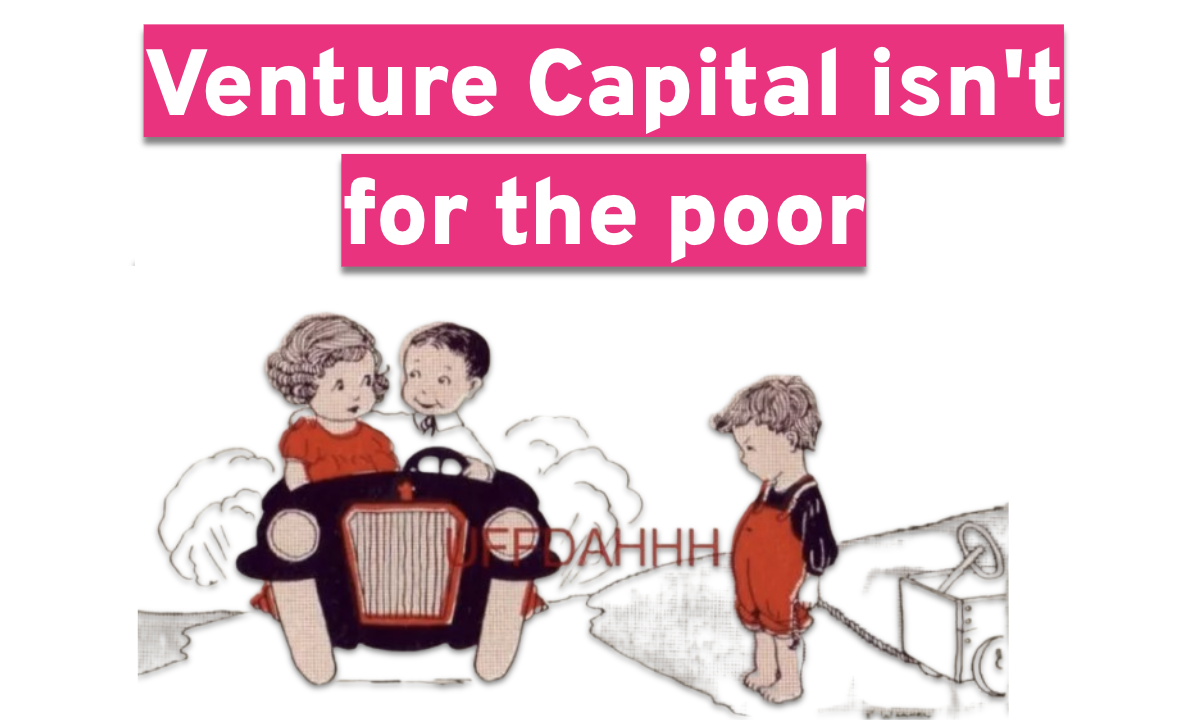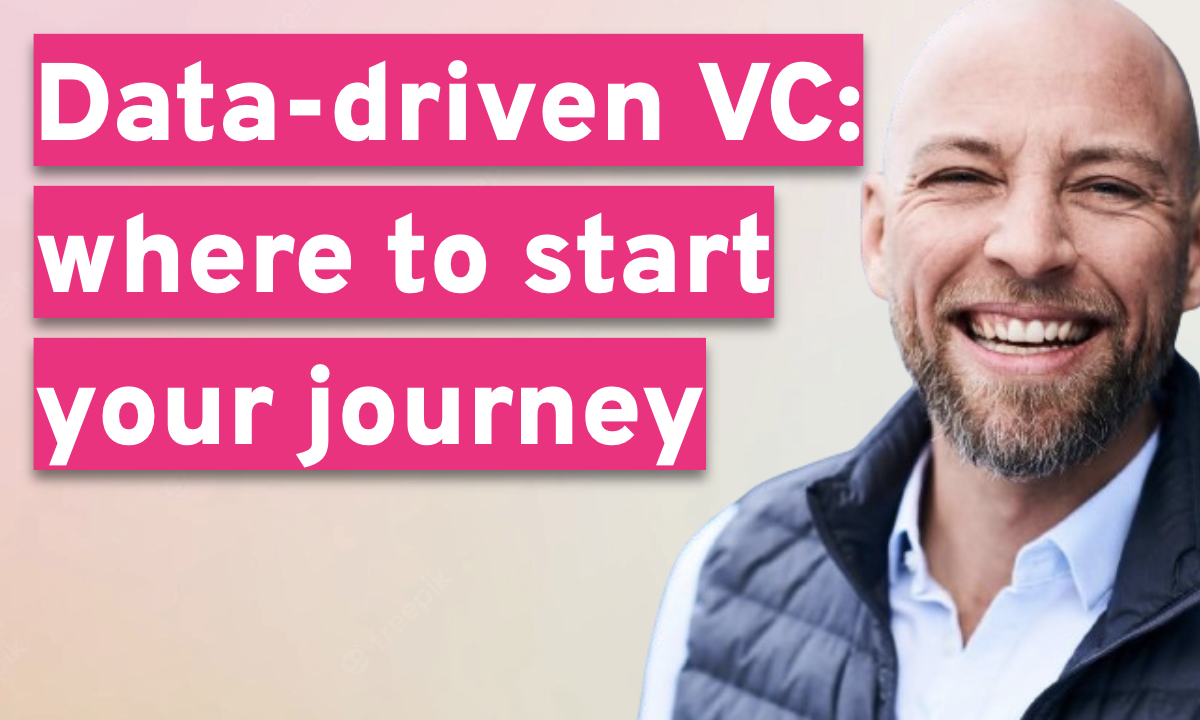We were allowed to snoop into the cool productivity hacks Flashpoint VC uses to automate mundane tasks.
They have their own browser Plugin called Multitool that provides context data about companies and is directly connected to their CRM. They also built tons of automated workflows with an Integration-Platform called n8n.
Even small things like enriching a list of URLs with context data they built in Google Sheets. For example, if you want to scan all companies from an event. Just throw the URLs in and you get all funding data and more.
And finally, Márton created a very cool cohort sheet. Throw in a time-series of revenues per account and you instantly get NDR, CLTV, Churn, etc. Very handy!
But have a look for yourself! 60min demo on Youtube.
Transcript
Hello, welcome to Stack Genius, the podcast for GPs and LPs that want to create alpha with technology.
My name is Silvan, and I greet you from Berlin. I hope you have a fabulous day wherever you are.
Today, I'm also joined by Márton , who I think is in Hungary right now. Are you on vacation or what are you doing in Hungary?
Márton : No, I'm just at the side of the lake. It's much better to be here during the summer when you have kids. It's very hard to be in the city. So I usually try to stay near some interesting location.
Silvan : That's fabulous. It sounds really good. And you're working with Flashpoint. So tell me about Flashpoint and also where you usually live.
Márton : Yeah, so Flashpoint is an alternative asset manager with three products: venture capital, venture debt, and secondary. We manage roughly $450 million, investing in companies in Europe and Israel. These companies usually sell to the US and Western Europe. Our thesis is that there is great talent in these regions that can create very good companies, and we aim to invest in those good companies.
Silvan: Sounds great. And where are you located, by the way?
Márton : Usually located in Budapest, Hungary.
Silvan: Right, right. So, I mean, I'm super excited about today because you agreed to show us a lot of the cool things you’ve built at Flashpoint. You’ve built a lot of technology, using some off-the-shelf tools and creating some cool hacks. When did you start with Agena? Why did you decide to build things?
Márton : I joined Flashpoint in 2017. At that time, a lot of VCs were using spreadsheets to manage most operations. I had a background in sales at DocPlanner, where I led Hungarian sales and became familiar with CRMs. I thought being a VC is like being a salesperson; you can adopt sales methodologies to VC use cases. So, we started implementing a CRM first, consciously choosing one that is API-first to use as a backend knowledge base. Over time, we built a substantial tech stack around our CRM, which is HubSpot, and other databases.
Silvan: Is it only you who built that? Did you have a team?
Márton : I started alone with some coding knowledge, but we hired full-stack engineers in 2019. I did the MVPs myself, and then they were professionalized by the team. I still act as the product manager, coming up with new ideas and directing the work.
Silvan: Did you have to overcome skepticism about these investments?
Márton : Sure. Changing the way business is done takes a significant change in mindset. We were lucky that everyone in Flashpoint is open-minded. Our work changes so much that we understand any tool or process that enhances it is beneficial. With many locations, we rely on digital tools to manage. It’s about results and resiliency. If what you build is useful and brings results, people will adopt it, and it’s easier to get resources.
Silvan: It sounds like you went ahead, did it, showed that it can be done, and then started hiring staff.
Márton : Pretty much. For example, when we used spreadsheets for CRM, I created an export that reformatted everything to fit the required format. Slowly, everyone started using the CRM. People saw it was faster and more efficient and started adopting it.
Silvan: So, what did you build the hacks for? Productivity? Analytics?
Márton : I look at it holistically. As a VC, you need to screen, select, analyze, invest, and do portfolio management. Plus, LP management. We try to enhance all these processes with various tools, some third-party and some in-house. We automate mundane tasks, like database searching, allowing us to focus on value-added activities. For example, we built a tool that takes a company URL, pings the HubSpot API, and gets all the info back on the screen, so you don’t need to switch between tools.
Silvan: Should we look at that together?
Márton : Sure. Let’s say you’re on a website. You open the multi-tool, and it shows all the info you need about the company. It lists the latest contact, portfolio status, analytics, similar companies, etc. We use various APIs and databases like DRoom for data enrichment. The tool is React-based with a sidebar template.
Silvan: Can you speak about Venture Scouts for a second?
Márton : Venture Scouts help us tap into local startup ecosystems. They discover companies for us to invest in for a commission. It’s a good opportunity for those not yet in VC but with strong networks. We built tools for them too. Scouts can add companies directly to HubSpot and see all potential investments they’ve sent us.
Silvan: How does the Venture Scout program work?
Márton : Scouts apply on our website, and their applications are auto-enriched with information from LinkedIn. We review and qualify them, and if approved, an automated system sends them a term sheet. This helps us maintain strong connections in locations where our small team can’t always reach.
Márton : The program is successful; we've sourced around 30-40% of our investments through scouts.
Silvan: That's incredible. So, essentially, it's like a distributed network of people bringing deals to you, and you're leveraging technology to manage and optimize this process.
Márton : Exactly. It's about efficiency. The right tools can significantly boost your productivity.
Silvan: Can you tell us about the other tools you've built?
Márton : We've built several tools. One is for deal sourcing and another for deal management. We use Airtable as a database for deal sourcing. The information is automatically pulled from different sources, including LinkedIn and Crunchbase, and enriched with our internal data. We also have an automated reporting system. Instead of manually creating reports for our LPs, our system generates them from the data in our CRM and databases.
Silvan: How do you manage data quality?
Márton : We have validation processes. Data is checked and cleaned regularly. We use APIs to ensure data from different sources is accurate and up-to-date. If there's a discrepancy, our system flags it for review.
Silvan: What about portfolio management?
Márton : For portfolio management, we built a tool that integrates with our accounting software and our CRM. It provides real-time updates on financials, performance metrics, and other key data points. This tool helps us make informed decisions and provides transparency to our LPs.
Silvan: You mentioned analytics earlier. How do you use analytics in your process?
Márton : Analytics is crucial. We analyze deal flow, investment performance, and market trends. We use tools like Tableau and Power BI to visualize data. This helps us identify patterns and make data-driven decisions. For example, we can see which types of companies perform better in certain markets and adjust our strategy accordingly.
Silvan: What about communication and collaboration?
Márton : We use Slack for communication and collaboration. All our tools are integrated with Slack, so we get real-time notifications and can discuss deals and portfolio companies directly within Slack channels. This keeps everyone on the same page and streamlines our workflow.
Silvan: It sounds like you have a comprehensive tech stack. What's next for Flashpoint in terms of technology?
Márton : We're always looking to improve. We're currently exploring AI and machine learning to enhance our deal sourcing and due diligence processes. We're also working on improving our LP portal to provide more insights and better transparency.
Silvan: That sounds exciting. Thanks for sharing all this, Márton. It's clear that Flashpoint is leveraging technology to stay ahead in the VC game.
Márton : Thank you, Silvan. It's been a pleasure talking with you.
Silvan: Thank you all for listening to Stack Genius. If you have any questions or want to learn more about Flashpoint, visit their website. And don't forget to subscribe to our podcast for more insights on how technology is transforming the world of venture capital.
Goodbye and take care.
About Márton
Márton Medveczky is an Associate Partner at Flashpoint VC, a venture capital firm based in Budapest, Hungary. He plays a pivotal role in the investment strategy and operations of the firm.
Márton has been instrumental in enhancing Flashpoint's deal quality and conversion rates by leveraging data-driven approaches. For instance, Flashpoint uses Dealroom’s API to improve deal sourcing and due diligence, which has significantly increased their conversion rates from initial calls to deeper dives from 5% to 10%.
His investment focus spans various stages and sectors, including seed and series investments in both consumer internet and enterprise companies.
About Flashpoint
Flashpoint Venture Capital is an international tech investment firm focusing on US and Western European tech companies originating from Europe and Israel. The firm manages six venture funds across three products: Venture Capital, Venture Debt, and Direct Secondary, with over $430 million in assets under management (AUM). Headquartered in London, Flashpoint also has offices in New York, Tel-Aviv, Budapest, Warsaw, Riga, and Nicosia.
Flashpoint's investment strategy centers on European and Israeli entrepreneurs expanding globally. They have a particular interest in sectors such as enterprise software, consumer products, fintech, and healthcare IT, investing in companies at various stages from late-seed to pre-IPO. Their portfolio includes notable companies like Guesty, Chili Piper, and Office RnD, among others.
Flashpoint has a broad geographic focus, investing primarily in the Nordics, Baltics, Central and Eastern Europe, and Israel. They typically invest in post-Series A companies with revenues between $3 million and $10 million, focusing on software products that have reached product-market fit and are in the growth phase.
The firm emphasizes supporting socially responsible development, investing a third of their capital in themes that contribute positively to the world, such as e-learning, telemedicine, and online job platforms.










